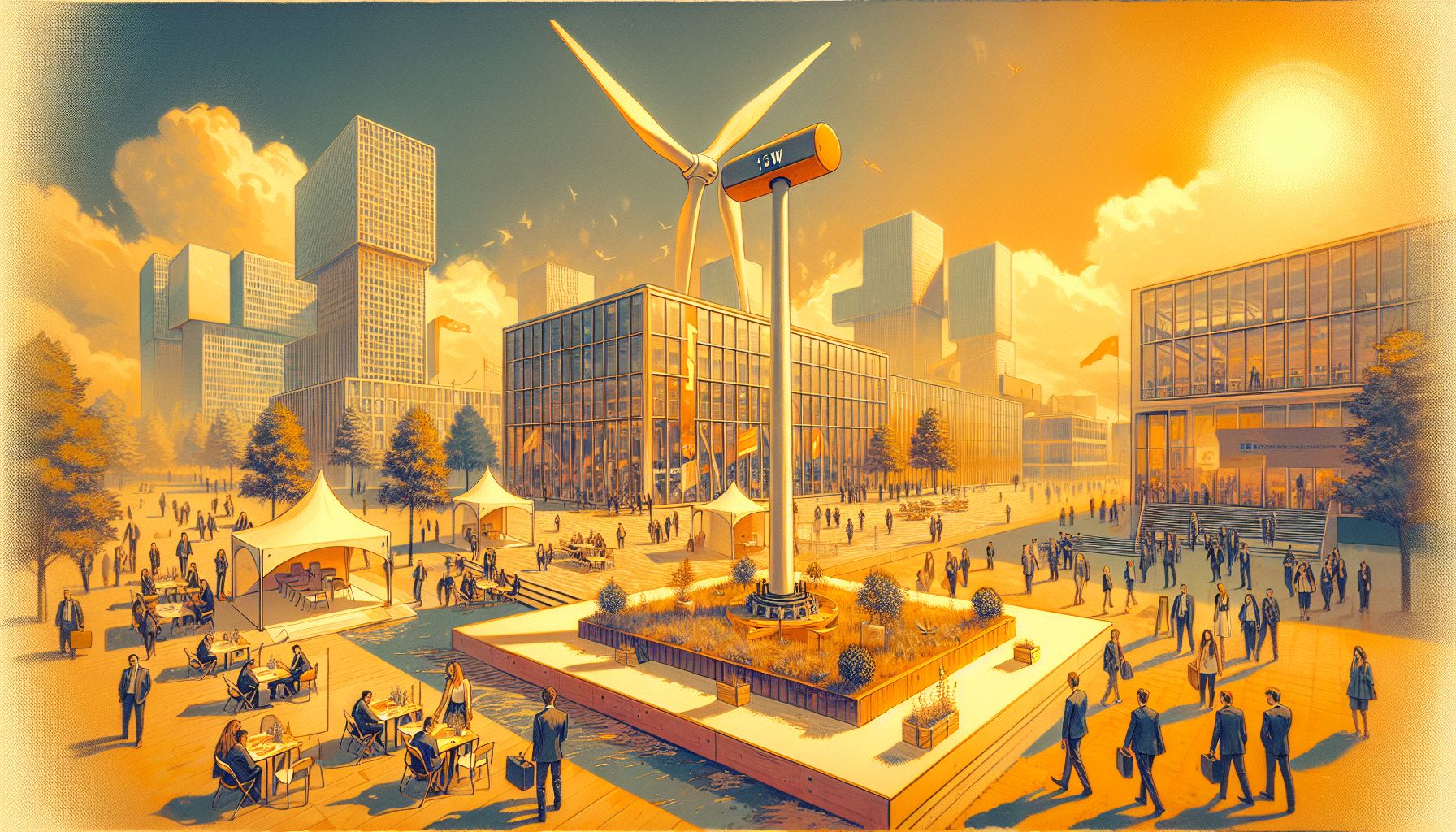Wind Turbine Marks Launch of Energy Transition Lab in Rotterdam

Rotterdam, Thursday, 4 July 2024.
A 1.5 kW wind turbine installed at Rotterdam’s RDM Campus signals the start of an innovative Energy Transition Lab. This collaborative initiative aims to advance sustainable energy solutions through hands-on research and education, bridging theory and practice for students and industry partners.
Innovative Educational Initiatives
The newly established Energy Transition Lab at Rotterdam’s RDM Campus, spearheaded by Hogeschool Rotterdam and the Centre of Expertise HRTech, is set to become a hub for renewable energy education and research. This initiative is supported by key stakeholders including Havenbedrijf Rotterdam, Gemeente Rotterdam, Gemeente Schiedam, Deltalinqs, and Buccaneer Delft. The lab’s primary feature, a 1.5 kW wind turbine, stands 18 meters tall and is equipped with advanced sensors tied to a comprehensive data platform. This setup allows for real-time data collection and analysis, offering students invaluable practical experience in sustainable energy technologies.
Hands-On Research and System Integration
Starting February 2024, the wind turbine will be used extensively for practical research on energy transition and system integration. This hands-on approach aims to connect theoretical knowledge with real-world applications, providing a robust learning environment for students. The Energy Transition Lab plans to expand its facilities further in the coming years by developing additional field labs, including those focused on floating wind turbines and electrolyzers. These expansions will offer even more opportunities for students to engage with cutting-edge renewable energy technologies.
Collaborative Efforts and Educational Goals
The establishment of the Energy Transition Lab is a collaborative effort involving multiple partners. The lab aims to provide a platform for companies to test and develop innovative solutions for the green energy transition. It also offers education and training modules designed to enhance knowledge and skills in sustainable energy. This initiative aligns with global efforts to combat climate change by promoting the use of renewable energy sources and sustainable practices.
Global Context and Future Prospects
The launch of the Energy Transition Lab in Rotterdam comes at a time when the global energy industry is under significant pressure to transition to low-carbon solutions. According to a recent report by Bureau Veritas, 130 countries committed at COP 28 to triple renewable energy capacity by 2030[1]. This ambitious goal underscores the importance of initiatives like the Energy Transition Lab, which are crucial for developing the technologies and skills needed to achieve these targets. The lab not only contributes to local educational goals but also plays a role in the broader global effort to create a sustainable and energy-efficient future.
Conclusion
The installation of the 1.5 kW wind turbine at Rotterdam’s RDM Campus marks a significant milestone in the journey towards sustainable energy solutions. Through collaborative efforts and a strong focus on practical education, the Energy Transition Lab is poised to make meaningful contributions to the renewable energy sector. As the world continues to navigate the complexities of the energy transition, such innovative initiatives will be vital in driving progress and ensuring a greener future for all.

